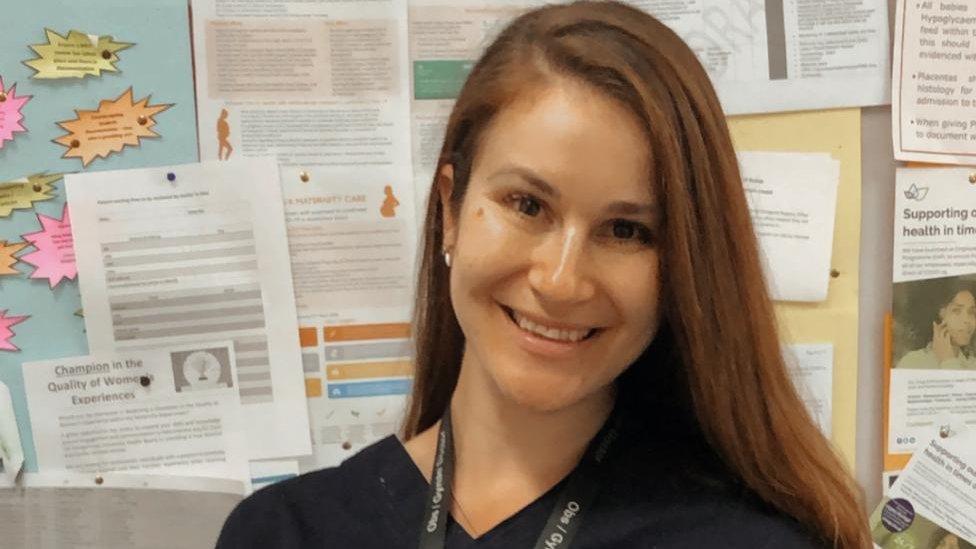Covid: Christmas coronavirus rules easing 'makes no sense'
- Published
- comments
'Two people every five minutes are getting Covid in Swansea area'
The Christmas relaxation of lockdown rules "makes no sense" as Covid-19 cases continue to rise in Wales, doctors have warned.
The Welsh Intensive Care Society also wants an "urgent" lockdown across Wales before Christmas, warning critical care would be unable to cope without urgent action.
It comes after the number of positive Covid-19 tests passed 100,000 in Wales
Wales' health minister Vaughan Gething has said "nothing is off the table".
But Mr Gething fears people would "make up their own rules" if meeting up over Christmas was banned.
Wales has the highest Covid-19 infection rate in the UK - a seven-day average of 425 cases per 100,000 - and eight of the UK's top 10 worst infected areas are in Wales with Merthyr Tydfil, Neath Port Talbot and Bridgend the top three.
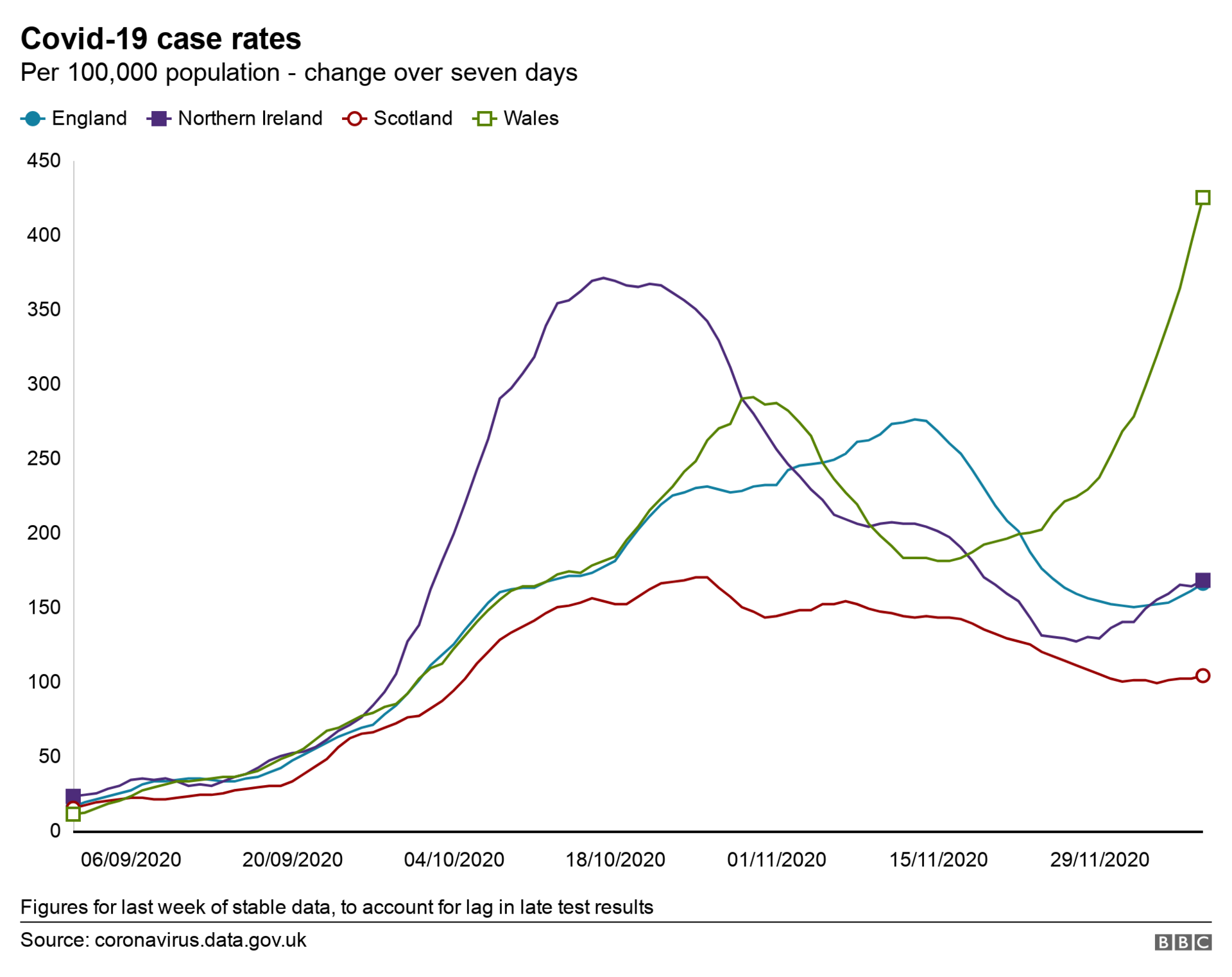

In a letter to the health minister, the Welsh Intensive Care Society chairman Dr Richard Pugh warns critical care services will not be able to cope over the winter period without intervention "at the highest level".
Up to three households can stay together and form a "Christmas bubble" from 23 to 27 December, all four UK nations have agreed.
But the body representing intensive care staff want that decision reviewed amid fears it will cause a surge in cases.
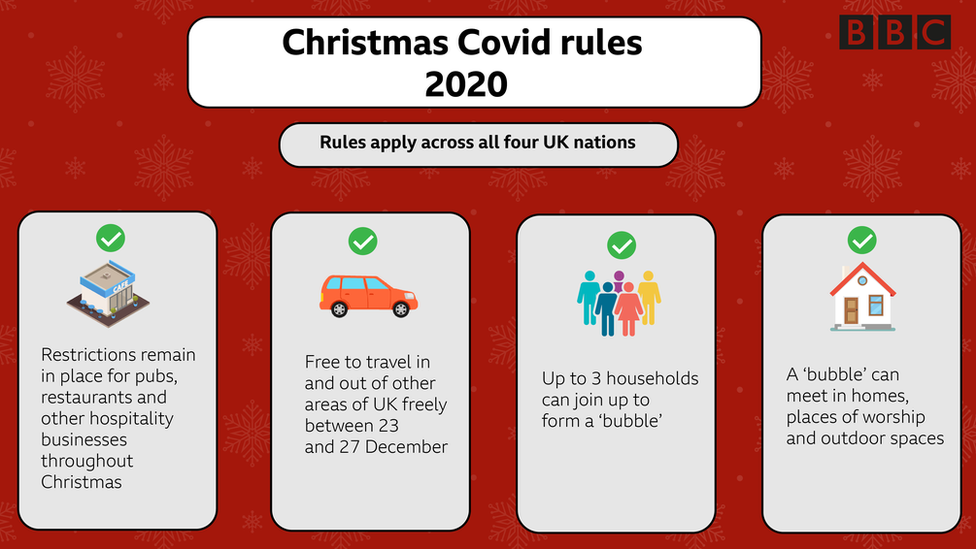
"Christmas is a special time but it seems a very, very difficult thing to justify," said Dr Pugh.
"It makes no sense viewed from a perspective of front-line staff and public health."
With 190 critical care beds already being used - almost half by coronavirus patients - Dr Pugh said critical care was already over-capacity.
"Welsh critical care services will be unable to manage rising demands relating to Covid-19, to maintain emergency non-Covid activity, and to continue providing peri-operative care for high risk urgent surgical cases in coming weeks without intervention at the highest level," he said.
Two health boards in south Wales have already cancelled some non-urgent care - Swansea Bay and Aneurin Bevan University Health Boards.
People in Cardiff share their views on the relaxation of Covid-19 rules over Christmas
Ambulances waited for the equivalent of a week to deliver sick patients to hospital staff at the new £350m Grange University Hospital in Cwmbran on Saturday.
On Sunday, Aneurin Bevan University Health Board apologised after a 73-year-old man waited more than 19 hours in an ambulance outside that hospital.
The Welsh Ambulance Service said more than 10 patients had waited more than 12 hours in ambulances outside hospitals awaiting beds in the last week.
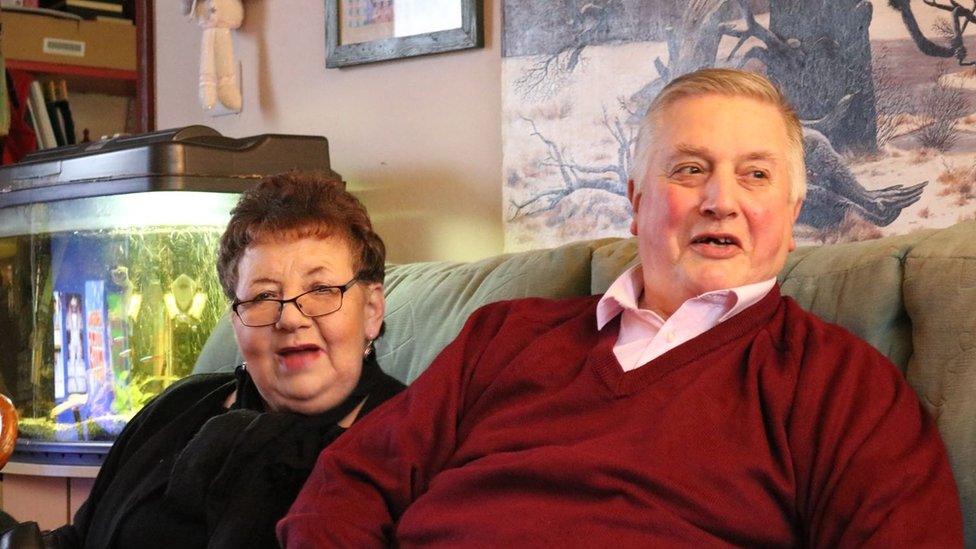
The family of Ted Edwards from Monmouthshire said he waited for 19 hours in an ambulance outside a hospital
The service has raised its alert system to its highest level, which signals "extreme pressure".
"We've seen more Covid-related patients in the last six weeks than than we've seen since March," chief executive Jason Killens told BBC Radio Wales.
"We've more staff off sick or self-isolating since April and we've seen some of our busiest days this year in the last 10 days, with four of the last five days the busiest since the start of the pandemic."
Added to "congestion" outside hospital A&E departments, Mr Killen apologised as ambulance crews had "real difficulties being able to respond in a timely way, particularly to less serious patients".
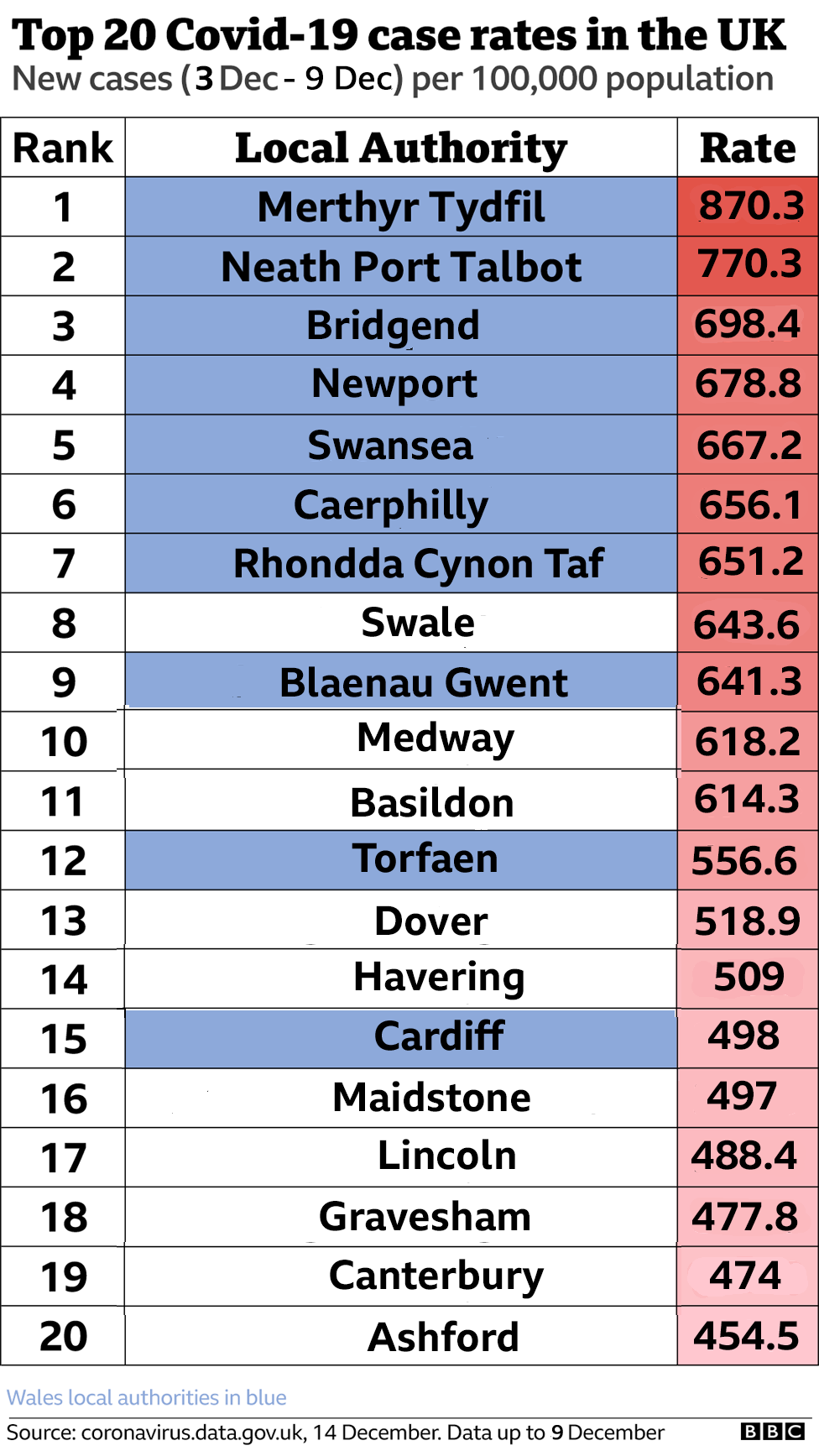
Dr Pugh said there was now a case for the cancellation of elective surgery to happen on a "national basis" to allow the NHS to be able to treat new patients as coronavirus cases increased.
He said that while imposing more stringent rules ahead of the festive period was difficult, the impact of lockdowns took weeks to help departments.
"Viewed from a front-line perspective, I am afraid we do not have the luxury of deferring such steps until after the Christmas period," added the intensive care consultant at Ysbyty Glan Clwyd in Denbighshire.
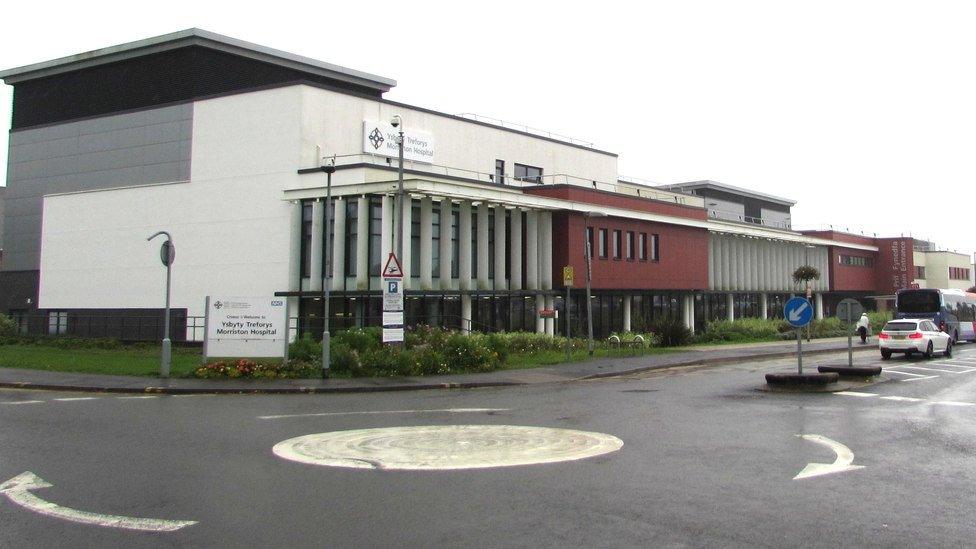
Morriston Hospital will be one of those in Swansea only treating urgent cases
Mr Gething said the situation across Wales was "very serious" but added it was not Wales' "preference" to break the Christmas rule relaxation.
"There is a lot of capital invested in that easing of the rules which all four countries signed up to," he said.
Mr Gething said officials were now working with hospitals to look at how to send patients who were no longer infectious - especially the elderly - home.


The seven-day case rate for Swansea Bay Health Board area, which treats patients in Neath Port Talbot and Swansea, now stands at 770.3 per 100,000 people.
It has the second highest rate for any of the board areas in Wales, behind Cwm Taf Morgannwg University Health Board on 870.3.
There were also more than 250 Covid patients in Swansea Bay hospitals, with another 115 recovering patients. This is about a third of all patients.

Allow X content?
This article contains content provided by X. We ask for your permission before anything is loaded, as they may be using cookies and other technologies. You may want to read X’s cookie policy, external and privacy policy, external before accepting. To view this content choose ‘accept and continue’.
Wales' First Minister Mark Drakeford warned the Welsh NHS was in danger of becoming the "national coronavirus service" when the number of positive Covid-19 tests passed 100,000 in Wales on Saturday.
Mr Gething said the Welsh NHS had experienced one of its busiest weekends of 2020 as it dealt with a combination of rising Covid cases and winter pressures.
He urged people to abide by rules and regulations, adding: "We need everyone's help to get through what remains of this year."


Covid-19 patients make up nearly 26% of all patients in hospital with 1,992 people in hospital across Wales on Sunday.
Dr Ami Jones, an intensive care consultant at the new Grange Hospital in Cwmbran, warned the hospital was "stuffed full with patients with very significant needs".
"We have reached a tipping point, we have more patients that have Covid than don't have Covid now," she said.
Dr Sarah Aitken, the health board's interim executive medical director, said there were now 404 patients with confirmed coronavirus in its hospitals - compared to 283 in April at the peak of the first wave of the pandemic.
However she insisted the service was not close to "breaking point".

- Published17 December 2020
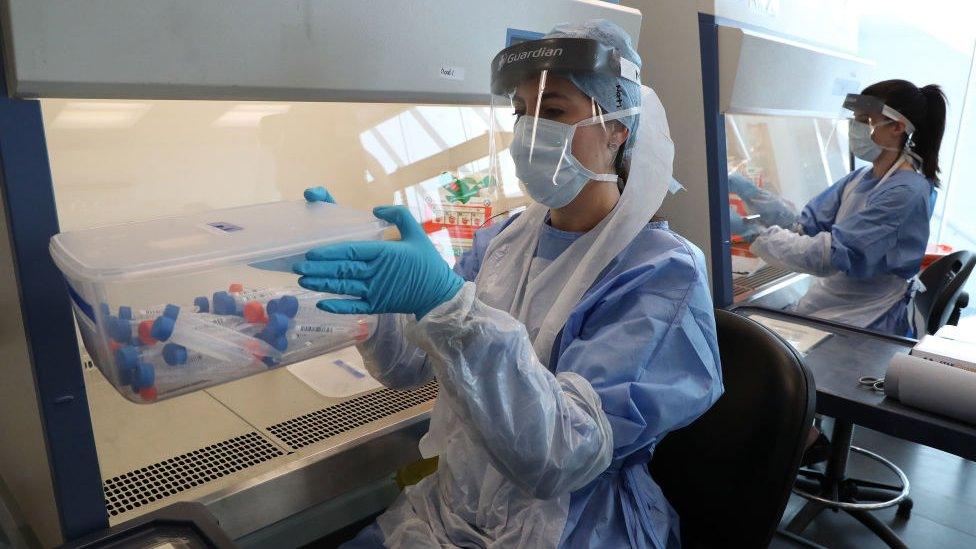
- Published14 December 2020
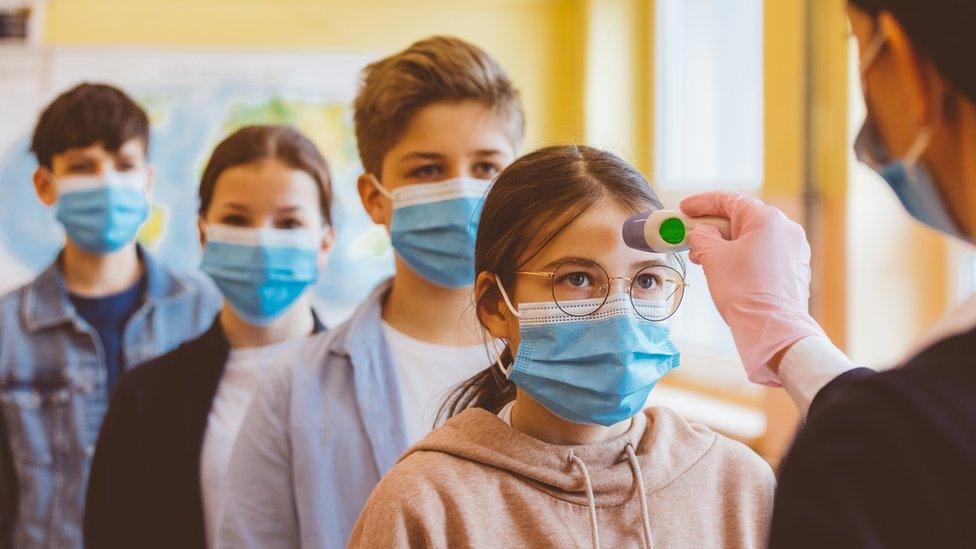
- Published14 December 2020
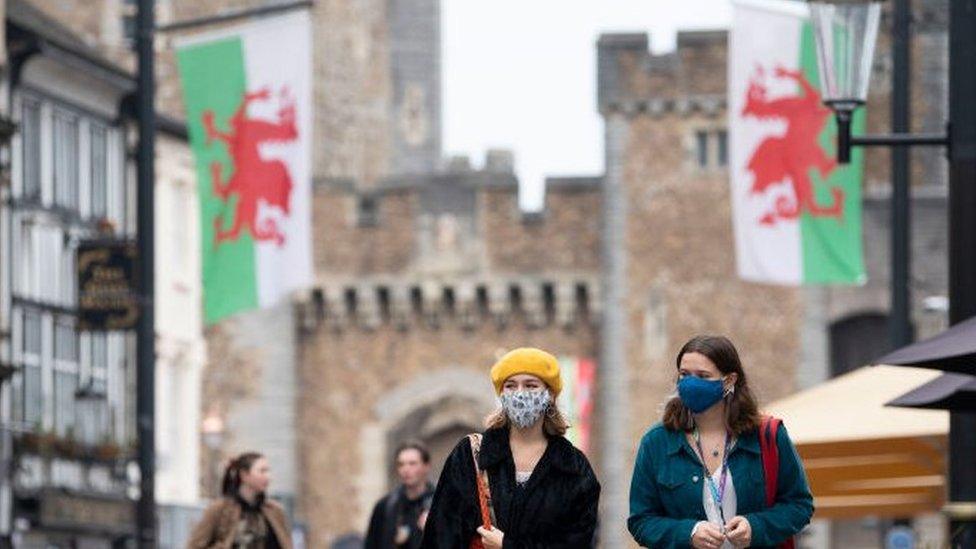
- Published14 December 2020

- Published14 December 2020
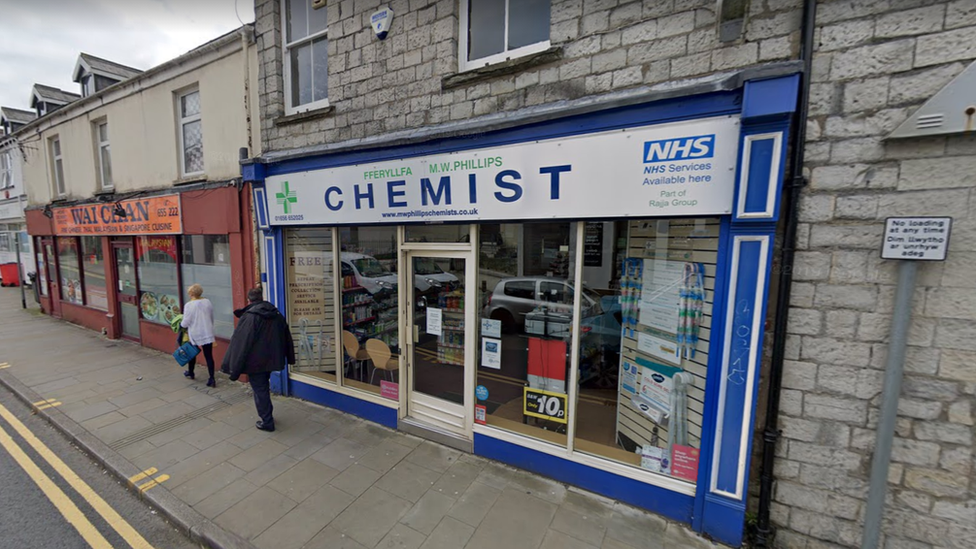
- Published13 December 2020

- Published13 December 2020
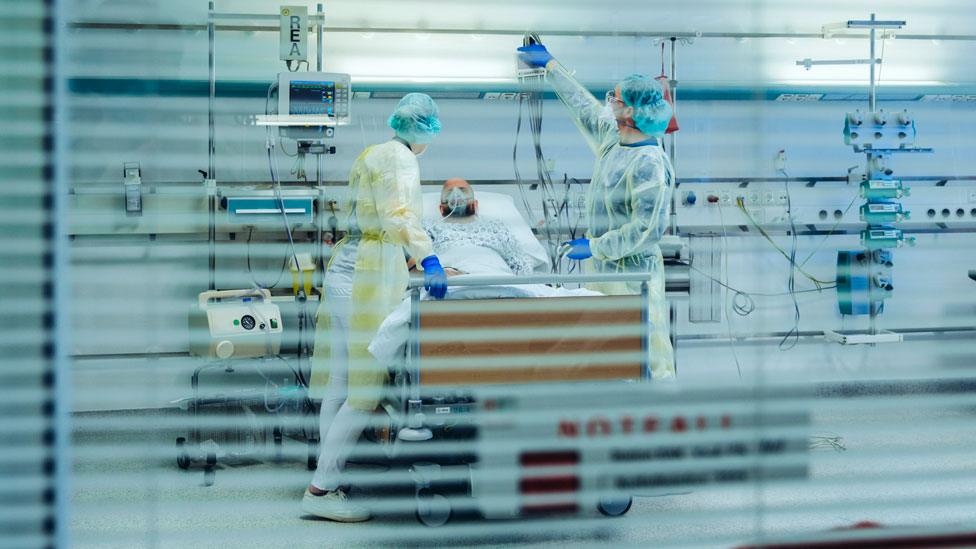
- Published13 December 2020
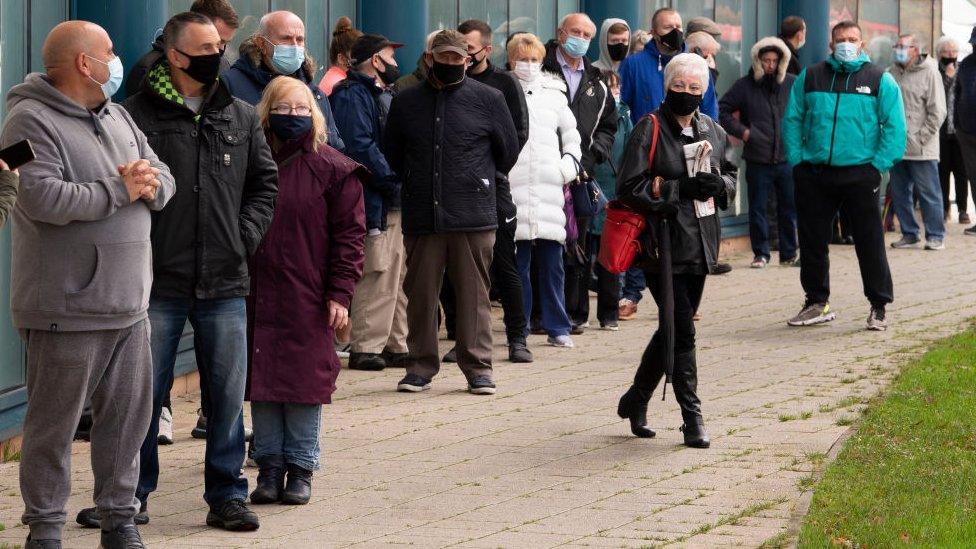
- Published28 May 2024

- Published9 December 2020
